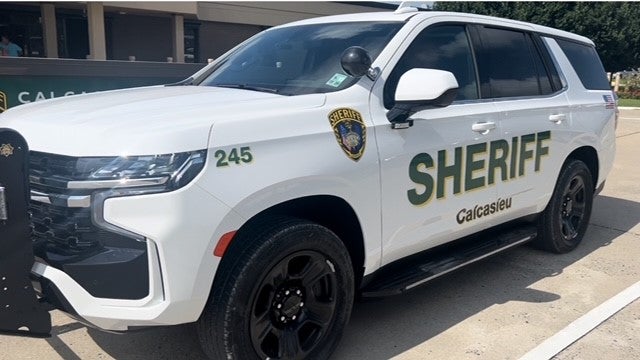2023 hurricane preparedness guide: Pet preparedness a must when facing evacuations
Published 10:46 am Friday, June 30, 2023

- “The safest place for your pet is riding in that vehicle right along with you,” said Greg Spicer of Sulphur Animal Control. (Metro Creative Services)
In the case of a hurricane, pet owners need a plan in place. While some evacuations may be short-term, there are times that you may not be able to return quickly.
“The safest place for your pet is riding in that vehicle right along with you,” said Greg Spicer of Sulphur Animal Control.
Spicer said he saw a big change in pet owner behavior between Hurricanes Rita and Laura.
“During the Hurricane Rita evacuation we had hundreds of pet owners calling us to give us permission to break out windows or whatever it took to feed and water their pets,” he said. “During Laura, we had only a handful. Pet owners are realizing it’s their responsibility to evacuate with their pets and they’re prepared.”
For pet owners who don’t have a plan in place for potential emergencies, including the need to evacuate, here are a few pointers from the Louisiana State Animal Response Team, the Louisiana Department of Agriculture and Forestry and LSU School of Veterinary Medicine.
Bring enough pet food for one week, the pet’s food and water bowl, bottled water, leash, harness or collar, proof of vaccinations, rabies tag, portable kennel and litter box and litter for cats, trash bags for stool disposal, newspaper or towels for crate lining, flea and tick protection. For exotic pets, bring their entire habitat, including lamps and extension cords.
If you plan to stay at a hotel, contact them in advance to confirm their pet-friendly policy. Although many hotels are lenient during crises, it’s essential to verify their current stance. For on-line information about pet-friendly hotels, check out petswelcome.com or bringfido.com/lodging. Online information for Alexandria as the destination — many evacuees headed north after Hurricane Laura — resulted in at least seven locations of pet-friendly hotels.
If you are staying with friends or family, make sure your pets are invited, as well. If not, ask for recommendations of nearby veterinary hospitals or boarding kennels and make reservations in advance.
Ensure your pets are up-to-date on vaccinations and bring their records. Obtain a copy of your pet’s vaccination record from your veterinarian and keep it with your emergency kit. If your pet requires medication, bring a sufficient two-week supply.
Identification of your pet is crucial. The ideal form of identification is a microchip or a tattoo. At minimum, your pet should have a tag with his name, your name, and your phone number. Pictures of your pet that capture identifying features are also a good idea.
Your pet’s kennel should be large enough for him to stand and turn around. Collapsible wire crates are best if your pets might be in a non-air conditioned environment for an extended period. A battery-operated fan that can attach to the cage can be a much appreciated addition. Molded plastic airline-approved crates make for easier transport and are best for animals that don’t travel well in the car.
Individuals with special needs or those who rely on transportation from the parish and other government entities may evacuate with their pets — with certain restrictions, according to Dick Gremillion, director of Homeland Security. Small pets in carriers might be able to ride in buses with pet owners. Other pets may be transported to the shelter site separately. It is important that pets be crated. Contact your parish emergency manager for details.





